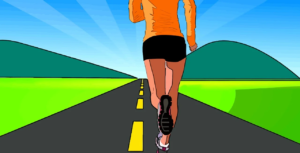In today’s fast-paced world, stress has become an inevitable part of our lives. Whether it’s due to financial stress, personal responsibilities or work pressures, stress can take a toll on your health, particularly your blood pressure. However, the good news is that there are effective coping strategies and relaxation techniques that can help you to manage your stress and mitigate its impact on your blood pressure.
So what’s the relationship between stress and blood pressure? Well, the answer is pretty simple. You see, stress triggers a physiological response in your body, commonly known as the “fight-or-flight” response. During this response, hormones such as adrenaline and cortisol are released, causing an increase in your heart rate and the narrowing of your blood vessels. These changes can lead to a temporary rise in blood pressure. While this response is necessary in acute situations, chronic stress can have long-term effects on your cardiovascular health.
The Impact of Stress on Blood Pressure
Prolonged stress can lead to persistent high blood pressure, also known as hypertension. Hypertension is a significant risk factor for heart disease, stroke, and other cardiovascular complications. Stress can also contribute to unhealthy habits like excessive alcohol consumption, overeating and smoking, which further increases the risk of hypertension.
Coping Strategies to Manage Stress
Stress is an unavoidable aspect of life, but how you cope with it can make a significant difference in your overall well-being. Here are some effective coping strategies to help you manage and reduce stress:

- Exercise
Engaging in regular physical activity helps reduce your stress levels by releasing endorphins, the body’s natural mood-boosting chemicals. So try and aim for at least 30 minutes of moderate exercise most days of the week.

- Healthy Lifestyle
Adopting a healthy lifestyle can have a positive impact on your stress management. So make sure you avoid excessive alcohol and tobacco use, eat a balanced diet, get adequate sleep and limit your intake of caffeine.

- Social Support
Share your concerns with trusted family members, friends or support groups. Remember that talking about your stressors can provide you with emotional relief and a fresh perspective on how to cope with them.

- Time Management
Learning to delegate responsibilities, prioritize tasks, and set realistic goals can help you to alleviate stress. Effective time management techniques such as breaking tasks into manageable chunks and creating to-do lists can be beneficial.
Relaxation Techniques to Reduce Stress
- Deep Breathing
Practice deep breathing exercises to activate your body’s relaxation response. Inhale deeply through your nose, hold the breath for a few seconds, and then exhale slowly through your mouth. Repeat this exercise several times and see for yourself.

- Engaging in Hobbies
Find activities that bring you joy and help you unwind, such as gardening, painting, reading or listening to music. Try and dedicate time to engage yourself in these activities on a regular basis.

- Meditation and Mindfulness
Engage in mindfulness practices such as meditation or yoga to calm your mind and reduce your stress. These techniques help you to focus your attention on the present moment whilst promoting relaxation.
- Progressive Muscle Relaxation
This technique involves tensing and then relaxing different muscle groups in your body, helping release any physical tension that is associated with your stress.
Always remember that adopting healthy lifestyle habits and prioritizing self-care are key to maintaining a balanced and stress-free life. Taking care of your emotional and mental well-being is just as important as caring for your physical health.






